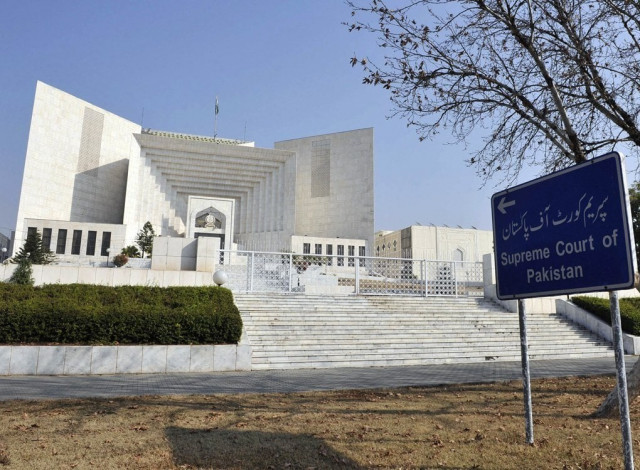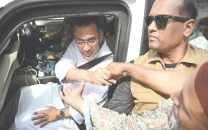SC judge seeks ‘structuring unfettered’ CJP powers
Calls for regulating chief justice’s authority on forming benches, exercising suo motu

Supreme Court Judge Justice Yahya Afridi has emphasised the need for structuring unfettered powers of Chief Justice of Pakistan to form benches and exercise suo motu powers.
"To maintain judicial discipline and to uphold the rule of law, there is an inherent and dire need for judicial introspection; to structure the unfettered discretion of the worthy Chief Justice of the Supreme Court to constitute benches of the Supreme Court to hear and decide cases under Article 184(3), and in particular, suo motu actions, lest the exercise of such jurisdiction may be seen to have been abused," said Justice Afridi in his dissenting note while dismissing Justice Qazi Faez Isa’s petition against the presidential reference.
Justice Afridi, however, observed that passing any definite findings on this crucial matter in the current petition would not only be swaying from the issue in hand but also, on many counts, would be premature, as the matter was already sub judice before the Supreme Court.
The judge noted that the scope and extent of the term “matters of public importance”, as provided under Article 184(3) of the Constitution, had been an issue of perennial deliberation of the top court.
"The judicial consensus reached is for the same to encompass any issue affecting the legal rights or liabilities of the public or the community at large, and it is not restricted to an individual or a group of individuals, how so large the group might be."
The SC judge noted that it was also settled law that the locus standi of the petitioner (Justice Isa) would not be a prime mover for determining this condition precedent of invoking Article 184(3) of the constitution, except in exceptional circumstances.
The debate also continued in the legal fraternity for regulating the CJP powers to form benches as well as initiating public interest litigations.
Lawyers believed that when the apex court regulated all functionaries’ discretionary powers then same should be done regarding unfettered powers of CJP.
The apex court tried to structure CJP powers on judicial as well as administrative side but nothing so far had been finalised.
The first full-court meeting was held on February 6, 2019 to deliberate on the issue but no apex court official was present during the two-hour session.
According to the minutes of the meeting, it was resolved that “the issue of exercise of jurisdiction under Article 184 (3) of the Constitution was discussed threadbare from all possible angles and it was affirmed that such jurisdiction will be exercised in accordance with the Constitution.”
Senior lawyers were of the view that there was no consensus among the SC judges to regulate the public interest jurisdiction and giving right of appeal in suo motu cases through amending the SC rules.
After the lawyers' movement, the overuse or misuse of suo motu powers was widely criticised by the superior bars and major political parties except for the ruling PTI.
Both the PML-N and PPP faced tough time due to use of suo motu powers by the apex court and a number of politicians faced disqualification.
According to the Article 225, no election dispute can be called in question except election petition but dozens of lawmakers had been disqualified while exercising jurisdiction of quo warranto under Article 184 (3).
Former CJP Asif Saeed Khosa formed larger benches comprising senior most judges to hear public interest matters. However, the incumbent CJP is not carrying out this past practice.



















COMMENTS
Comments are moderated and generally will be posted if they are on-topic and not abusive.
For more information, please see our Comments FAQ